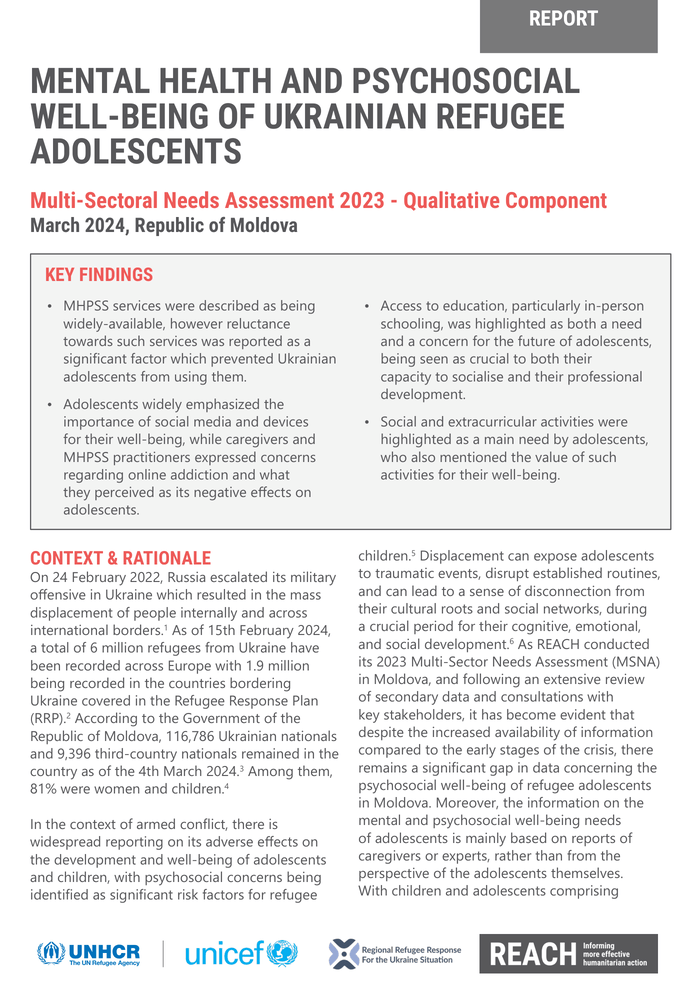Main findings
• Although MHPSS services are described as widely available, resistance to such services is reported to be a major factor preventing Ukrainian youth from accessing services.
• Although adolescents broadly emphasized the importance of social media and devices for health, caregivers and MHPSS practitioners expressed concerns about online addiction and its negative impact on adolescents.
• Access to education, particularly face-to-face education, is highlighted as both a need and a concern for the future of young people and is considered important for both socialization abilities and professional development.
• Social and extracurricular activities were highlighted as the main needs of young people, who also said that such activities were important to their well-being.
Background and rationale
On February 24, 2022, Russia escalated its military offensive into Ukraine, resulting in the displacement of large numbers of people within the country and across its borders. As of February 15, 2024, a total of 6 million refugees from Ukraine have been recorded across Europe, of which 1.9 million share borders with Ukraine and are subject to the Refugee Response Plan (RRP). recorded in many countries. According to the Government of the Republic of Moldova, as of March 4, 2024, 116,786 Ukrainian nationals and 9,396 third-country nationals remained in the country. Of these, 81% were women and children.
Psychosocial concerns have been identified as a significant risk factor for refugee children in situations of armed conflict, and there are widespread reports of the negative impact of armed conflict on the development and well-being of adolescents and children. Displacement can expose adolescents to traumatic events, disrupt established routines, and cause a sense of disconnection from cultural roots and social networks at a critical time for cognitive, emotional, and social development. There is a gender. REACH conducted a 2023 Multi-Sectoral Needs Assessment (MSNA) in Moldova, following extensive review of secondary data and consultation with key stakeholders, increasing the availability of information compared to the early stages of the crisis. Nevertheless, significant gaps remain in data regarding the psychosocial well-being of refugee youth in Moldova. Furthermore, information about the mental and psychosocial well-being needs of adolescents is primarily based on caregiver and professional reports rather than from the perspective of the adolescents themselves. As 44% of Moldova's refugee population is made up of children and adolescents, it is important to gain a deeper understanding of their mental and psychosocial health, as well as refugee adolescents' own perspectives and perspectives, which may differ from those of their caregivers. It is important to collect. Therefore, it was decided that a qualitative component investigating the psychosocial well-being of young people and Mental Health and Psychosocial Support (MHPSS) services would be conducted to bring more clarity to this particular subject.
Therefore, the aim of this evaluation was to obtain a comprehensive understanding of the psychosocial well-being and needs of refugee adolescents (14–17 years) in Moldova. This includes examining their coping mechanisms and access to formal and informal support. The results can be used to inform humanitarian and development programs implemented by stakeholders working in MHPSS and other programs targeting refugee youth by highlighting response gaps that need to be addressed. was to be done.


